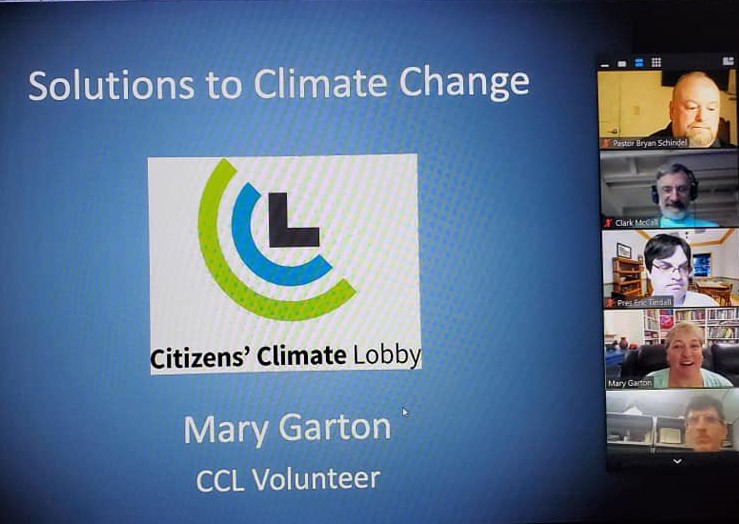Citizens’ Climate Lobby is a non-profit, nonpartisan, grassroots advocacy organization focused on national policies to address climate change.
Mary talked about the Energy Innovation and Carbon Dividend Act, which the lobby supports.
Mary said, "A viable climate change solution needs to be big and lasting — which means bipartisan legislation. We fully support the Energy Innovation and Carbon Dividend Act. This policy will drive down America’s carbon pollution while unleashing American technology innovation and ingenuity." The Citizens' Climate Lobby support it because it’s:
Effective
This policy will reduce America’s emissions by at least 40% in the first 12 years.
- Good for People
This policy will improve health and save lives. Additionally, the carbon dividend puts money directly into people’s pockets every month to spend as they see fit, helping low and middle income Americans.
Bipartisan:
Republicans and Democrats are both on board, cosponsoring this bill together. The majority of Americans support Congress taking action on climate change, including more than half of Republicans. Solving climate change is too urgent to get caught up in partisan politics.Revenue Neutral:
The fees collected on carbon emissions will be allocated to all Americans to spend any way they choose. The government will not keep any of the fees collected.
This is how it works:
- Carbon Fee
- Carbon Dividend
- Border Carbon Adjustment
- Regulatory Adjustment

